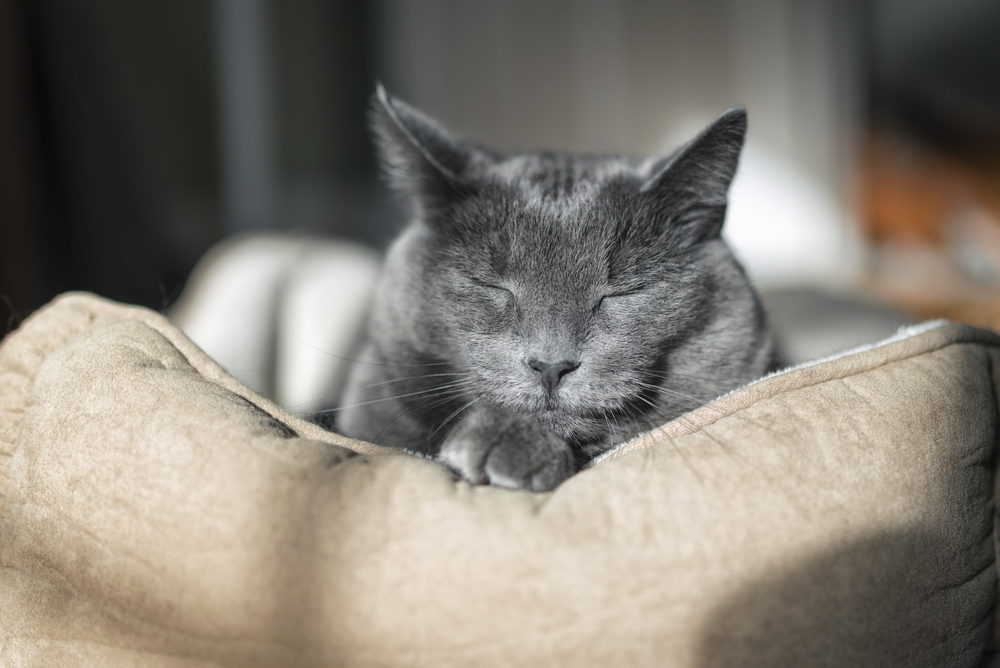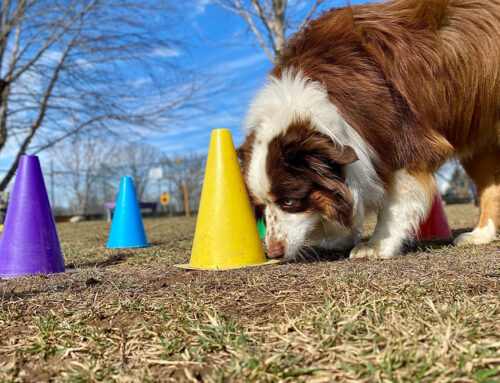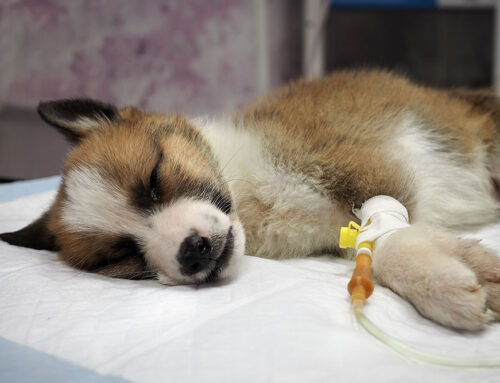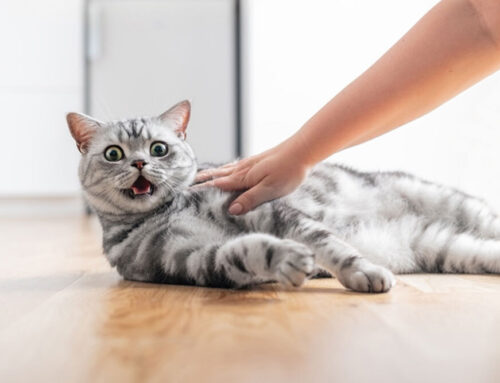Just like human medicine, veterinary medicine has progressed over the years, and pets are enjoying longer lives. With this increase in lifespan, pets and their caretakers find themselves facing additional age-related health conditions more often. Fortunately, there are more resources and options than ever before to help your elderly companion enjoy her golden years.
Increased veterinary care
Instead of the yearly veterinary visit your pet has enjoyed since she was young, biannual or even quarterly examinations may be necessary now that she’s considered a senior. Pets age so much more rapidly than humans, and more frequent veterinary exams can catch problems early. In addition to rooting out disease processes in the early stages, we can also discuss any necessary changes in your pet’s routine essential to maintaining a good quality of life.
During all stages of life, prevention is the best medicine, such as an appropriate vaccination protocol and parasite prevention. As pets age, their bodies don’t function as well as they used to, so senior pet exams tend to be more in-depth than a standard adult wellness visit. During these visits, diagnostic testing may be performed for signs of diseases more likely seen in older pets, including:
- Kidney disease
- Senility
- Cancer
- Liver disease
- Diabetes
- Cushing’s disease
- Thyroid conditions
- Dental disease
- Cataracts
- Heart failure
- Arthritis
- Reproductive diseases in pets who have not been spayed or neutered
We may recommend a geriatric blood panel, radiographs, and a urinalysis to keep an eye on your pet’s health as she ages.
Diet and nutrition
A high-quality diet is the cornerstone of a pet’s health. Nutrition is a powerful tool in helping to prevent and manage disease and maintain health. As an animal ages, nutritional requirements change. Senior pet diets contain:
- Prescription formulas designed for battling kidney, liver, thyroid, and heart diseases
- Reduced calories (obesity is a common problem in older pets)
- Higher fiber for gastrointestinal health
- High-quality protein sources to maintain muscle mass and body weight without placing an excessive strain on the kidneys
- Added glucosamine, chondroitin, and fatty acids for joint health
Because of decreased mobility, exercise, and metabolism, weight gain is common in senior pets. An appropriate diet is essential for preventing obesity. Talk to us about the best senior diet for your pet’s specific nutritional needs, especially if she has a chronic health condition.
Maintaining mobility
Vital to a senior pet’s quality of life, mobility is essential in keeping your pet happy, healthy, comfortable, and clean. Pets unable to move without pain do not have a decent quality of life. Numerous changes can be made within your home to keep your pet active and part of the family. While dogs and cats can benefit from similar environmental changes, such as soft, warm beds and stairs or ramps for furniture, there are several species-specific changes that can help keep your pet comfortable.
- Dogs, especially larger, heavier breeds, commonly lose their balance on slick tile, laminate, or wood flooring. Consider placing runners or rugs as pathways to cover these slick surfaces. Toe grips, which are small, hard rubber bands, can be placed on your dog’s nails to help her gain traction on smooth flooring.
- Cats may run into elimination issues as they age. Often, cats will avoid the litter box because they associate it with pain. This pain can be caused by attempting to manipulate arthritic limbs over litter box sides that are too-high or by posturing to eliminate. Make your kitty’s elimination experience as pleasant as possible by providing multiple, short-sided litter boxes that are at least one and a half times her body length for maximum comfort.
In addition to making changes at home, veterinary-prescribed medications can help alleviate pain and promote joint health. Schedule a consultation to discuss any medications or supplements before starting your pet on a pain-reducing protocol.
Mental health
As more pets are living well into their senior years, their mental health can start to deteriorate. Cognitive dysfunction syndrome, a type of dementia, can lead to:
- Disorientation
- Changes in affection or irritability with other pets and people
- Waking during the night or sleeping during the day
- Memory loss for learned behaviors, such as house-training
- Anxiety
- Wandering
Keep your pet’s mind sharp with interactive food puzzles, toys, and games. Teach your furry companion new tricks and skills throughout her life.
Keep your pet feeling her best throughout her senior years. Call us at 256-859-2221 to schedule a checkup for your beloved companion.









Leave A Comment